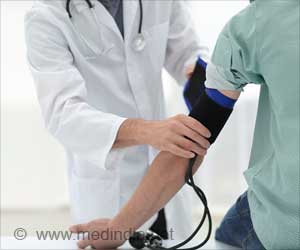Safety precautions are necessary while prescribing antibiotics to hypertension patients. Genetic makeup and gut bacteria play a vital role in how blood pressure may be affected differentially by antibiotic treatment.

‘Individual hypertensive responses to antibiotic treatment may vary based on the genetic makeup and gut bacteria.’





As antibiotics kill harmful bacteria to cure infections, they may also eliminate helpful bacteria that maintain good health. Because gut microbiota are linked to an individual's high blood pressure, University of Toledo College of Medicine and Life Sciences researchers explained, "individual hypertensive responses to antibiotics may vary depending on the host and its microbiota." The research team studied two strains of rats that have different gut microbiota, but both have a genetic tendency for hypertension. Dahl salt-sensitive rats ("Dahl rats") develop high blood pressure in response to a high-salt diet, while spontaneously hypertensive rats ("SHR rats") are seen as an animal model of high blood pressure unrelated to dietary salt. The researchers treated both strains with three common antibiotics:
- Vancomycin, which treats inflammation and infection of the colon (colitis)
- Minocycline, which treats urinary tract infections, acne and certain types of sexually transmitted infections and
- Neomycin, which is used to prevent high cholesterol and is an active ingredient in many medicated creams, ointments and eye drops
Minocycline also caused the diastolic blood pressure--the pressure in the arteries while the heart is at rest--to rise in the Dahl rats. SHR rats treated with any of the antibiotics experienced either a drop in systolic blood pressure or no change, as with neomycin.
These findings suggest that "the host [genetic makeup] plays an important role in how blood pressure will be affected differentially by antibiotic treatment. This highlights the importance of further studies to determine the mechanism behind these different effects," the researchers wrote. "This raises the question of safety in the usage of antibiotics by patients with such modern ailments [as hypertension]."
Advertisement















